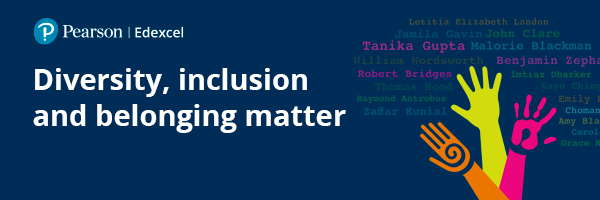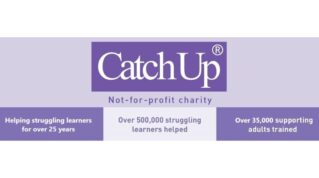Following the release of the Missing Pages paper from educational charity, Teach First, we wanted to express our commitment to their recommendations for tackling the lack of diversity within GCSE English Literature.
In 2019 we added two new novels, two new plays and a new poetry collection to our Pearson Edexcel GCSE (9-1) English Literature specification. The titles are:
- The Empress by Tanika Gupta (2013)
- Refugee Boy by Benjamin Zephaniah and adapted for the stage by Lemn Sissay (2013)
- Coram Boy by Jamila Gavin (2004)
- Boys Don’t Cry by Malorie Blackman
- Belonging a new collection curated in collaboration with The Poetry Society
We have created a wealth of free resources to help teachers looking to teach one of our new texts including comprehensive schemes of work, drama activities, knowledge organisers and student lessons that are available to download for free from our website.
Hayley Andrews, teacher at Turing House School says:
“My students have engaged really well with the content and the real life issues dealt with in Boys Don’t Cry by Malorie Blackman. I think it’s been interesting for them to study and it’s definitely prompted some fascinating conversations about homosexuality, society, teenagers, benefits, parenthood etc, so that’s been great.”
You can find out more about our 2019 texts additions and accompanying teaching support here.
Although we already have more than 25% of GCSE texts by authors from ethnic minority backgrounds, we remain committed to maximising diversity in the curriculum and will continue to engage with students and teachers through webinars, conferences and training, to help us build a more inclusive education system.
We are hosting a free online webinar on 22nd October with special guest Bennie Kara, focusing on practical strategies on how to diversify your curriculum. We invite teachers and leaders from all awarding bodies to join us.
Bennie Kara, founder of DiverseEd, has also joined us on our recent podcast episode: ‘Diversity is not a bolt on’ where she discusses delivering an integrated diverse curriculum. Listen now.
















Your thoughts